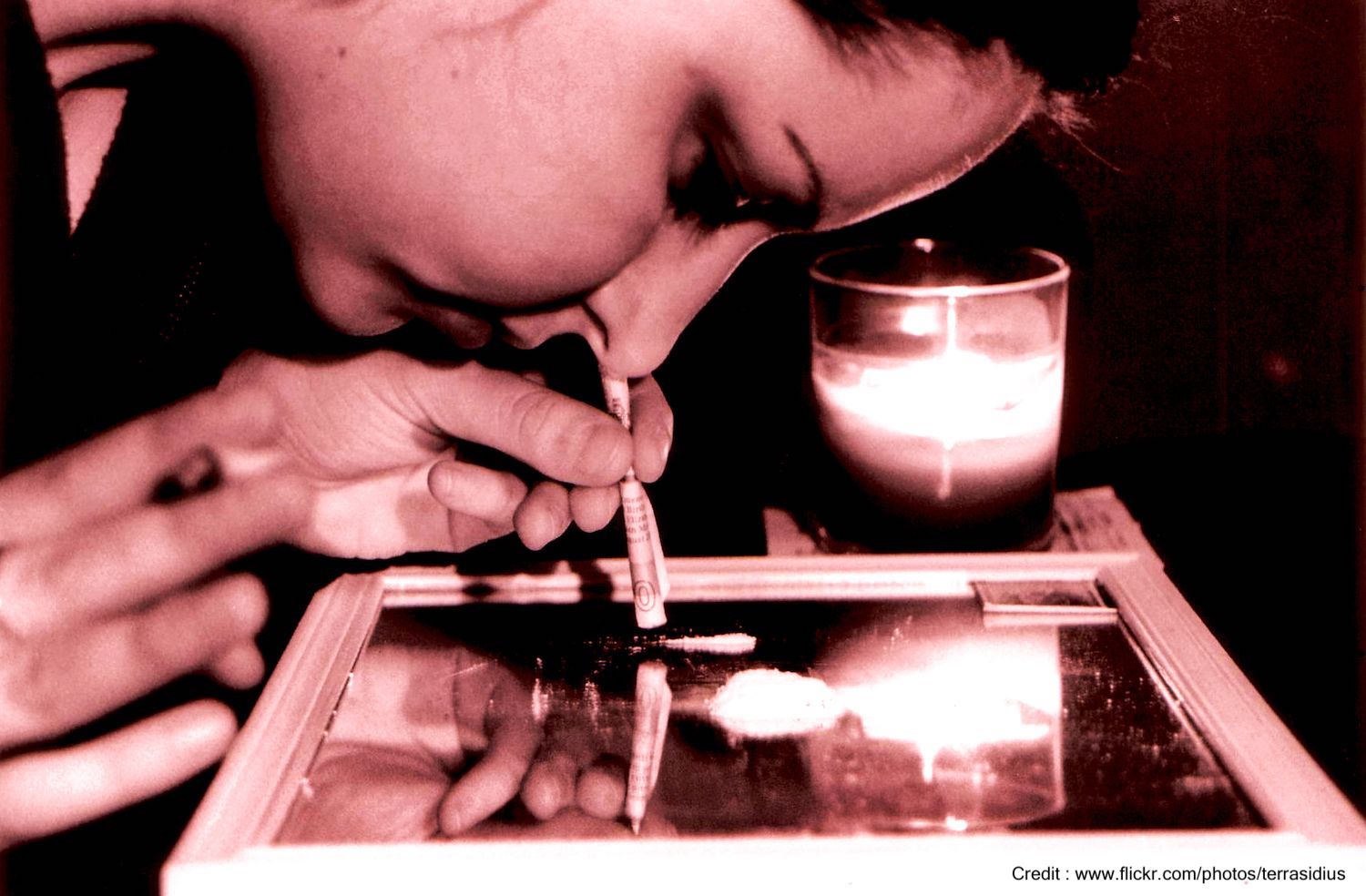Successful, well-liked—and addicted to cocaine. High-functioning cocaine users often appear to have everything going for them, but their addiction could derail everything they have worked for. Learn ways to talk to someone who’s convinced themselves that they don’t have a problem.
Being concerned about a high-functioning cocaine addict can be extraordinarily frustrating. While they may be extremely capable at work and in social settings, you know that the consequences of their drug use could catch up with them. However, whenever you try to communicate your worries, your words are simply shrugged off.
Your loved one may alternate between hiding their drug use and being nonchalant about it, assuring you that “it’s not a big deal”. Their ability to compartmentalise and rationalise their drug use often makes conversations about the potential for long-term negative impacts and the need for treatment fall flat. So how can you begin to break through the defences they have built around their addiction to get them the help they need?
There are several key factors to consider when talking to a high-functioning cocaine addict about their addiction. Being mindful of these can help you gain ground in getting a loved one to listen, and begin to think about the benefits of treatment.
Timing is Everything
By now you have probably become somewhat familiar with your loved one’s pattern of use. You recognise the increased confidence, energy, and emotion while they’re high, followed by a marked shift during the “crash” where they are depressed and irritable.
Both of these periods are not productive times to discuss your loved one’s cocaine use. While they are high, they may be talkative and even willing to analyse their cocaine use to a certain extent, but when these effects wear off your conversation will likely come to an abrupt halt. The crash period finds most cocaine users uninterested in engaging in conversation, and attempts to do so during this time will likely be met with anger or a refusal to talk.
Instead, wait for a time when your loved one isn’t under the influence. Try to find a time where it is just the two of you, and you have a bit of time and space to chat. If you raise the addiction issue and they aren’t receptive, let it go and try again at a later date. Trying to talk to someone who has emotionally shut down isn’t healthy for either of you, and is ultimately not constructive. The key here is to be able to identify potentially good times to have a conversation, and to be persistent in your attempts to communicate your concerns.
Patience and a Refusal to Pander
Convincing a high-functioning cocaine addict to seek treatment is not an easy task, and it will take time before they are ready to come to terms with the fact that they need to get healthy. Striking a consistent balance between being supportive of the person but not of the addiction is the tone you want to strive for when engaging in conversations about their cocaine use. Don’t laugh off wild party stories or accounts of near misses, or play into attempts to glamorise or normalise use. You can tell your friend that you love them, want them to be happy, and don’t find anything about their cocaine use casual or funny.
Challenging the narrative that they have told themselves is an important reminder that their perception is not an objective reality. This can be done without shaming, anger or insult, and is far more effective when spoken simply and calmly.
For example, if your loved one tells you, “A couple of lines just gives me the energy I need to really nail those presentations,” you can respond, “You’re more than capable of giving those presentations on your own, and those lines could jeopardise everything you have worked so hard for.”
Facing the Future
People with high-functioning cocaine addiction typically deal with their cocaine use solely in the present moment. If there aren’t any immediately apparent problems, this is used as justification to continue use. They may tell you, “I’m healthy, I’m working, and I’m successful – this isn’t a problem, and it’s none of your business.”
Unfortunately, addiction isn’t a static state but a progressive disease, and so the long-term prognosis for cocaine addiction includes serious and permanent impacts on the body and brain such as:
- Blood clots
- Arrhythmia
- High blood pressure
- Heart attack
- Septal perforation (damage and holes to the cartilage inside the nose)
- Mini-stroke
- Seizures
- Memory issues
- Greater risk for movement disorders such as Parkinson’s disease
While these risks may seem too distant to be of concern, it is possible that being reminded of potential impacts to one’s work or reputation in the nearer future will grab a high-functioning user’s attention. A random drug test could have immediate and devastating consequences regardless of someone’s ability to mask their addiction.
Your loved one may already be aware of this and be wondering things like “how long does cocaine stay in urine?” or “how long does cocaine stay in the system?” or “what are the consequences of failing a drug test?”
The reality is that their cocaine use could lead to serious professional costs and penalties, including losing professional licenses, permanent reputational damage, and legal problems. Helping a high-functioning user accept that these consequences are possible can lead to a realisation that the only guaranteed way to avoid these is by getting sober.
Treatment for High-Functioning Cocaine Addiction
Many people with high-functioning cocaine addiction will usually try to quit or cut back their use on their own, only to find themselves unable to do so. Few will accept that this is due to addiction, instead chalking up their lack of success to bad timing or stress. Cocaine is a highly addictive drug, and without professional treatment to help someone manage withdrawal and to heal areas of the brain affected by addiction, relapse is highly likely.
For some, detox from cocaine is necessary, which is most safely done when under medical supervision. A health professional can help someone cope with symptoms of withdrawal, which can include intense cravings, mood swings, insomnia, and fatigue.
Cognitive behavioural therapy (CBT) is often a key component of treatment for cocaine addiction. CBT focuses on identifying the root cause of the addiction, understanding triggers, and developing new patterns of thought that help shift the focus of the brain away from the addiction. People undergoing CBT also learn new coping skills to help them manage stress and deal with life’s challenges.
Another aspect of treatment might include the practice of healthy habits to naturally boost mood and energy levels while providing an outlet for stress. This could include things like fitness training, jogging, yoga, or mindfulness meditation.
At its essence, professional cocaine addiction treatment will seek to transition a person from dependence on a coping mechanism that carries a great deal of risk to their health, work, and relationships, to a lifestyle where they can easily access a variety of healthy tools to deal with stress, boost energy, and find satisfaction.
Overcoming Cocaine Addiction at The Dawn

The Dawn Wellness Centre and Rehab is a unique drug rehab in Thailand specifically designed to help people understand and overcome addiction and other co-occurring disorders. Our experienced, compassionate team of internationally-trained professionals will work with you from the moment you arrive to develop a personalised treatment plan catered to your needs. At our cocaine rehab Thailand programme, you’ll benefit from a range of modern psychotherapeutic techniques together with a wide offering of proven wellness practices, all under one roof.
Why Choose Cocaine Rehab in Thailand?
Many of those struggling with cocaine addiction are high-functioning individuals who prefer discretion whilst they are sorting their issues out. They are aware that anonymity is one of the many benefits of rehab abroad Located amidst verdant gardens on a beautiful riverside in Northern Thailand, The Dawn is the only treatment center in Asia to be internationally accredited by the American Accreditation Commission International (AACI). Our resort-like facilities include amenities such as traditional Thai massage, a fitness centre, swimming pool, and a yoga and meditation studio.
Come to The Dawn and focus solely on you and your recovery. Call us today to learn more about our programming.
Related Posts
 Do you Know Mark? Signs of a High-functioning Cocaine Addict
Mark uses cocaine every weekend with his friends. He has a high-pressure job as an investment banker. He works hard. He plays hard. And if you ask him if he...
Do you Know Mark? Signs of a High-functioning Cocaine Addict
Mark uses cocaine every weekend with his friends. He has a high-pressure job as an investment banker. He works hard. He plays hard. And if you ask him if he...
 Cocaine, Addiction, and Australia: What’s Going on in Sydney and Beyond
With cocaine use at an all time high in Sydney and urban Australia, you might be wondering, “just how addictive is cocaine?” Though the increasing prevalence of its use might...
Cocaine, Addiction, and Australia: What’s Going on in Sydney and Beyond
With cocaine use at an all time high in Sydney and urban Australia, you might be wondering, “just how addictive is cocaine?” Though the increasing prevalence of its use might...
 Why is Cocaine So Addictive?
Cocaine was involved in nearly 16,000 overdose deaths in the US in 2017 and the UN estimates between 14 million and 21 million people use cocaine worldwide. Cocaine use can...
Why is Cocaine So Addictive?
Cocaine was involved in nearly 16,000 overdose deaths in the US in 2017 and the UN estimates between 14 million and 21 million people use cocaine worldwide. Cocaine use can...
 Cocaine Use Rises in the UK – Are You a Part of the Statistics?
Despite its longstanding status as a Class A illegal drug in the UK, cocaine remains a widely used substance for those looking for a quick boost in energy, confidence, and...
Cocaine Use Rises in the UK – Are You a Part of the Statistics?
Despite its longstanding status as a Class A illegal drug in the UK, cocaine remains a widely used substance for those looking for a quick boost in energy, confidence, and...





